15 Times Expecting Mothers Showed a Funny Side of Being Pregnant
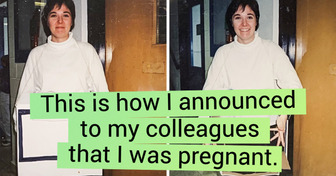
You take off from Earth and park your spacecraft somewhere near the Moon. You’re now almost 240,000 miles away from your home planet. That’s almost 100 widths of the United States. Now, you take out a giant hammer and an enormous chisel using the robotic arms of your spaceship. You place the chisel at the Earth’s North Pole and strike its head with the hammer. Earth splits open like an eggshell, and you see it... Another planet.
It’s Theia. And it’s hiding inside our planet like a yolk in an egg. You’d need to go back in time 4.5 billion years to find out how it got there. This beautiful nebula will soon become our Solar System. Colored dust and various space debris are slowly coming closer toward the common center. Soon this jigsaw puzzle of debris becomes too heavy and dense. The temperature inside the giant is rising. Soon, it gets so high that it triggers a nuclear chain reaction.
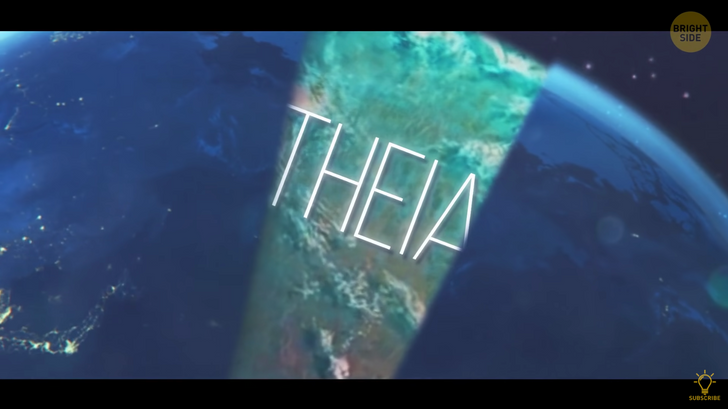
Another second and... Bam! There’s an explosion so powerful that the shockwaves travel far into dark space. And the blinding flash from this blast can be seen from the other side of the Milky Way galaxy. When the dust clears a little, you can see that a bright light is still shining at the very center of the explosion. This newborn star is the Sun. It weighs as much as 333,000 Earths. If the Sun was a bucket, you’d need 1.3 million Earth-sized planets to fill it.
You’re interested in a small object over there, 93 million miles away from the Sun. This pile of rocks and hot lava is Earth. Right now, the planet is busy forming its core while the oceans of lava are gradually cooling down. But a few tens of million of years after the Sun’s birth, you notice a strange object hurtling toward Earth. It’s Theia. This small planet was born at about the same time as Earth. And now, it’s following a crazy spiral trajectory at enormous speed!
Scientists believe Theia was kind of a ball Jupiter and Venus played with. Venus was pulling Theia in one direction. Then big brother Jupiter pulled it back. But the Sun makes up 99.8% of the mass of the entire Solar System. That’s why the star sets its own rules. It makes Theia move in almost the same orbit as Earth. So they inevitably come closer and closer to each other until they become next-door neighbors. We see that Theia is the size of Mars and as wide as the Atlantic Ocean from New York to Portugal.
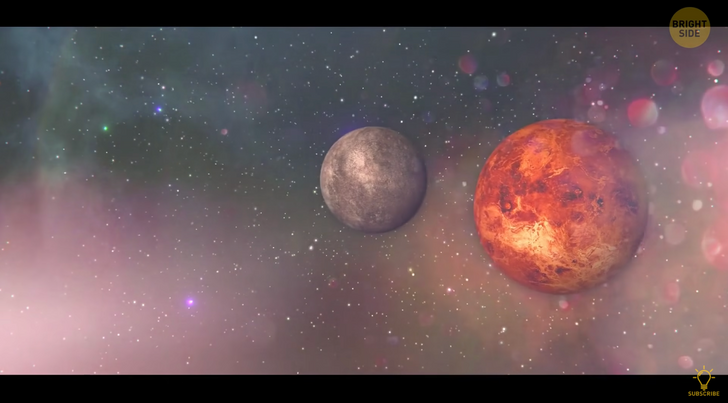
A collision can’t be avoided. Theia is traveling toward Earth at nearly 9,000 mph. That’s 11 times faster than the speed of sound. If the smaller planet crashes into Earth at a particular angle, Earth will most likely be torn apart, as well as Theia itself. The collision will cause a huge blast visible on other planets even on a bright day. Nothing will be left but some burning dust and debris. Even if Theia touches Earth only lightly, it’ll still knock out a chunk of our planet the size of Australia.
But the collision with Theia happens at a perfect 45-degree angle. It strikes the Earth at tremendous speed. The explosion literally vaporizes huge amounts of rock. And the shock wave sends the remaining debris into Earth’s orbit. A huge crater is formed at the impact site. Soon it gets filled with boiling lava.
The remnants of Theia and the ejected fragments of Earth begin to orbit our planet. According to one version, these fragments form two moons. At first, they travel together. But one day, they get too close to each other and collide, forming one large space body. The other theory claims that all the shards start being pulled by the remnants of Theia. Some time later, they form the Moon as we know it now. At that point in the past, though, it’s just red-hot rock and lava.
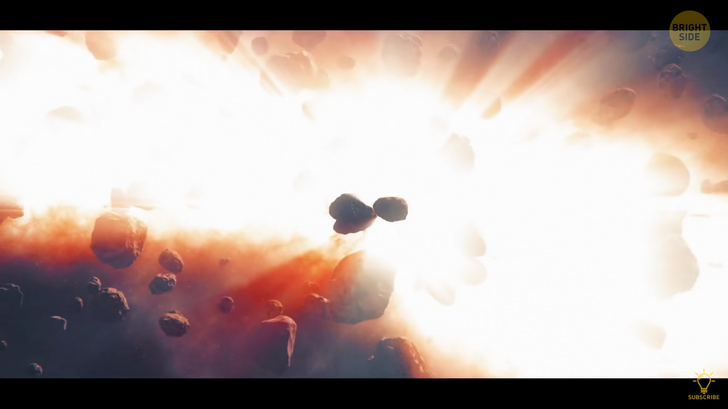
The collision at this angle slightly tilts our planet and accelerates its rotation. It’s because of Theia that we have different seasons and 24 hours in a day. Earth has lithospheric plates. These are enormous solid pieces that make up the crust of our planet. After the collision with Theia, they start to break and crack. It causes carbon — a primary component of all known life on Earth — to start moving all over our planet. So, Earth gets some kind of metabolism.
After a few hundred million years, the first living creatures start to appear on our planet. Over nearly four billion years, simple single-celled organisms have been evolving into the life you see today. According to scientists, such a collision is a very rare event. The probability that somewhere out there, there’s a planet like ours that has survived the same catastrophe is extremely small. This may be the reason why we are yet to find traces of other civilizations out there in space.
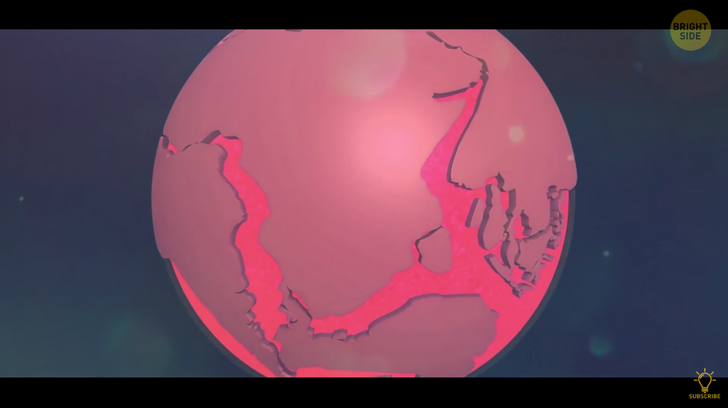
Meanwhile, the remains of Theia are still here on Earth. Of course, it doesn’t look like an entire planet stuck inside our own. Most of the fragments have melted and blended into the Earth’s crust. If you take the top layer off our planet, you’ll see two huge lava blobs the size of entire continents. They’re right below Africa and the Pacific Ocean. Presumably, these are the remains of Theia. They didn’t mix with Earth’s mantle because of different densities.
It’s like mixing water and oil in a glass. The oil will always float up over the water and create an even layer on top of it. But if you raised those lava patches up to the surface, they’d be 100 times higher than Mount Everest. Other remains of Theia might be on the Moon. The Apollo space missions brought back many soil samples for analysis. Scientists have concluded that the Moon is very similar to Earth in structure.
People could drill deep down and take samples there. Then they’d analyze the blobs from Earth. If their structure matched, it’d be a 100% proof that Theia did hit Earth 4.5 billion years ago. And that’s how we got the Moon. But for the time being, Theia remains somewhat mysterious. Scientists are still not sure that the planet actually existed. The whole idea perfectly fits the model of the Moon’s creation. But in fact, this incredible collision may have never happened.
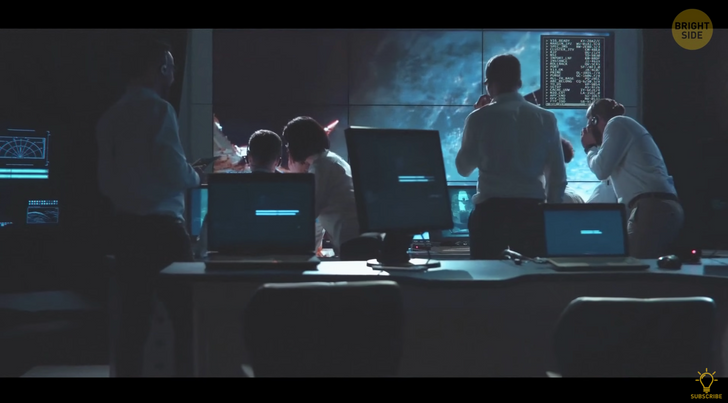
Now you travel 41 light-years away from Earth to the planet 55 Cancri e. It’s about twice the size of Earth and eight times heavier. You take out your giant hammer again and use it to hit the chisel. The planet cracks... And you see it’s a giant diamond! The temperature on this planet is tens of times higher than that on Earth. And its soil is rich in carbon. The heat puts a lot of pressure on this carbon. Its structure changes. First, it turns into graphite. Some more pressure — and graphite turns into diamond.
On Earth, diamonds form at depths below 60 miles where the pressure is 50,000 times greater than on the surface. The temperatures there rise over a thousand degrees, which is as hot as fire. Diamonds are ejected closer to the surface in volcanic eruptions. Still, people have to dig mines 1,500 ft deep to find these beautiful gems. The Golden Jubilee Diamond is the biggest cut and faceted diamond on Earth. It weighs as much as a chocolate bar and is the size of a hamster. Its price is about $12 million. Now imagine a diamond the size of an entire planet!
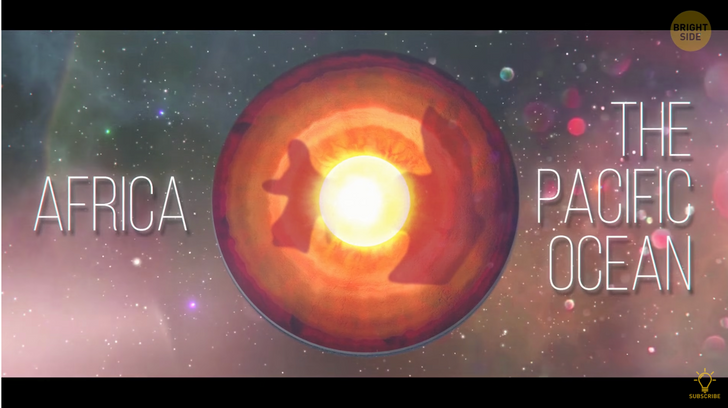
You decide to fly back to the Solar System. Your destination is Jupiter’s moon Europa. It’s as wide as the distance between Seattle and Houston. And its mass is less than 1% the mass of Earth. Its surface is enclosed in an icy crust. It’s about 19 miles thick. But what if you crack this crust with your giant hammer? Wow, Europa is completely covered in water! It’s freezing here — three times colder than at the North Pole on Earth. The water turns into ice almost instantly. But the ocean beneath the surface is still liquid.
Europa interacts with Jupiter gravitationally, just like the Moon with Earth. This creates tidal forces and heats Europa’s core. The core melts the ice around it. The result is a huge ocean, two to three times larger than all of Earth’s oceans combined. Scientists believe that water is the basis of life. It may mean that life may exist on Europa. There could be thermal springs, just like at the bottom of our oceans. The water there is probably much warmer. And even though the pressure and temperature in such places are likely to be extreme, simple bacteria may live there.
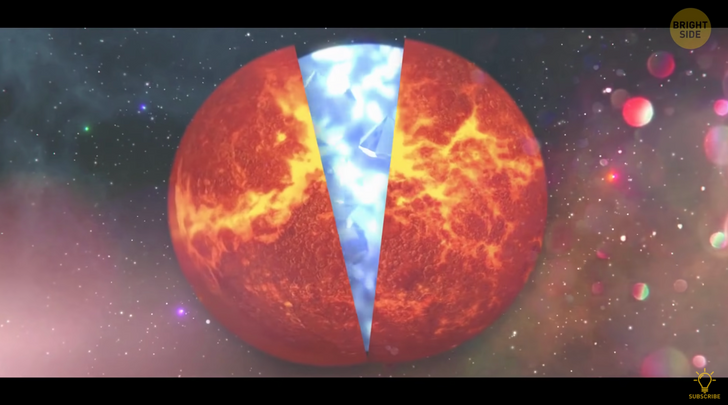
Europa is almost the same age as Earth. This means there has been enough time for living organisms to appear and evolve.
Who knows, maybe some advanced civilization is already blooming under this crust of ice. They might be building big cities and dreaming of conquering space right now. But the only thing people can do at the moment is send a probe to Europa and find out if life is possible there.











